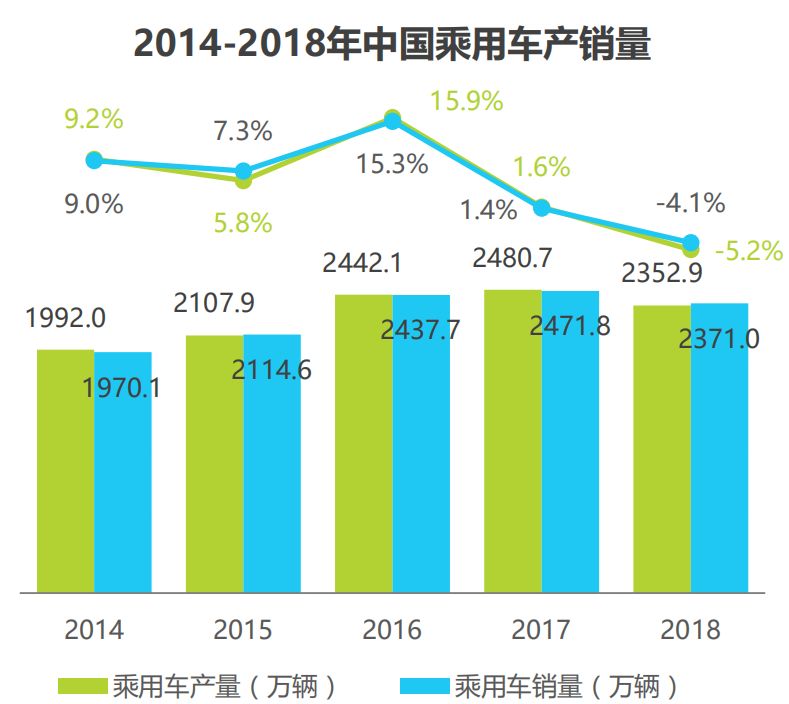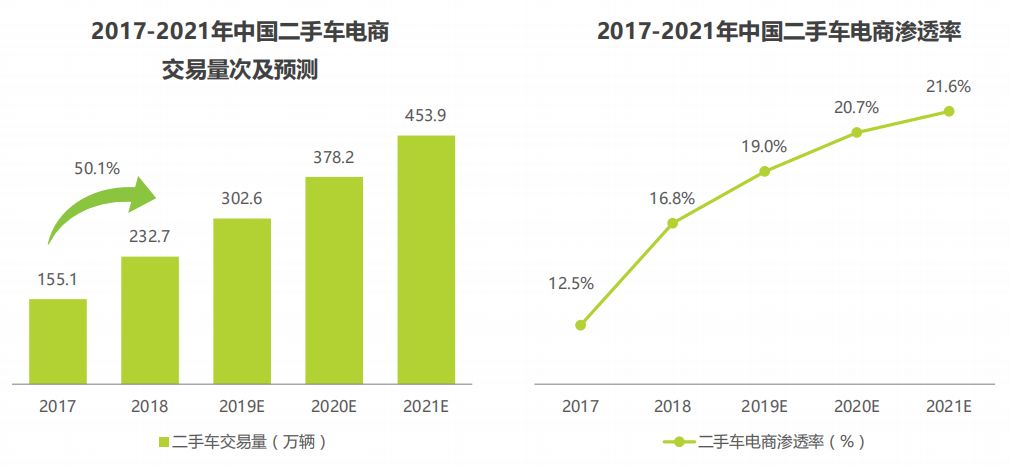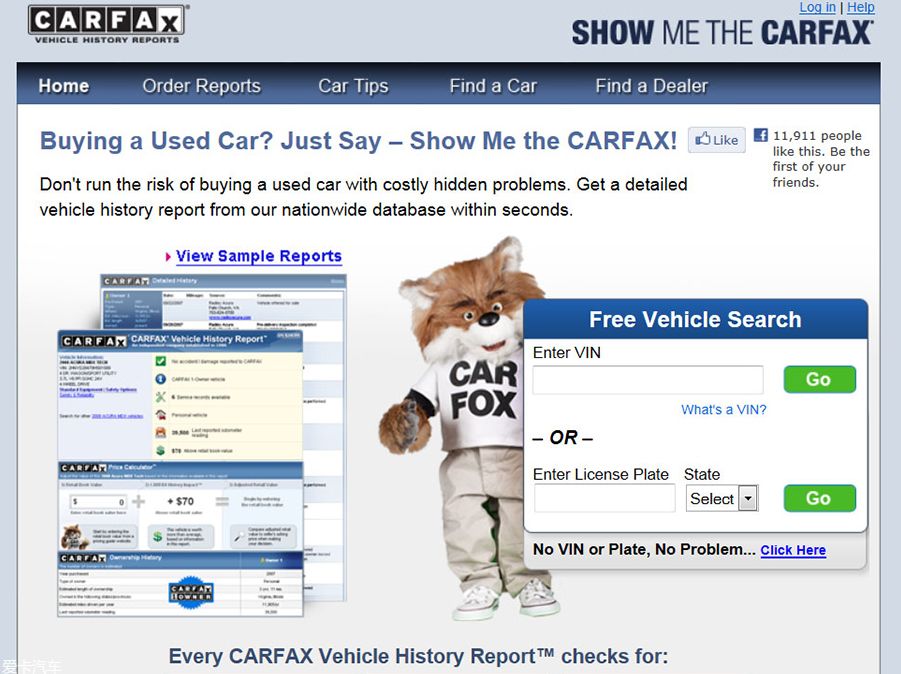Who is this pot?
In recent days, the media has reported on the “failed goods” in the used car market. After the program was broadcast, the melon sub-car responded that it was highly valued internally and strived to solve 100% of the user’s reasonable demands within 3 days.
This is a second-hand car deal with “water depth”, which is even more unfathomable.
But think about it, domestic second-hand car transactions are still concentrated in the offline tangible market, according to the probability to calculate whether the similar problem is more prominent under the line? Information asymmetry and opacity of vehicles are common problems in the industry. The development of used car e-commerce in recent years is flourishing. The digitization of the transaction process has undoubtedly driven the industry as a whole. Therefore, the issue deserves attention, but it is not advisable to negate it all.
The lack of industry supervision, the incompleteness of the industrial structure, and the unconsciousness of the participants. After looking at these objective pain points, we can draw a conclusion: the pot should not let the second-hand car e-commerce side fully back.
A stumbling block to the trillion market
The passenger car is the most important trading vehicle in the used car market. Since 2017, due to multiple factors, the Chinese passenger car market has gradually shifted from the incremental market to the stock market.
The data released by the Automobile Industry Association shows that the growth rate of passenger car production and sales volume in China in 2017 was 1.6% and 1.4%, respectively, which was significantly lower than the 15.9% and 15.3% in 2016. By 2018, the output and sales volume were even Both show negative growth. In this context, the number of private cars in China has maintained a relatively high growth rate. The burden of promoting the circulation of automobiles in used car trading is getting heavier and heavier, and its position in the automobile consumer industry is prominent.
The policy also continues to release positive signals. On April 29, 2019, the Ministry of Commerce, the Ministry of Public Security and the General Administration of Customs jointly issued the “Notice on Supporting the Launch of Used Car Export Business in Conditionally Mature Areas”. Subsequently, Beijing, Shanghai and other 10 provinces and cities actively responded to the call and issued corresponding measures.
Imagine, used car dealersThe industry will usher in more opportunities. According to iResearch, the transaction volume of the used car market in China has achieved a compound annual growth rate of over 22% in the past 8 years. The transaction volume in 2018 has reached 860.36 billion yuan, and it is expected to exceed the trillion mark in 2019.
However, in the past years, the domestic used car industry has always been a “distributed”, “chaotic”, “backward” image, and various disputes continue.
According to the Beijing No. 2 Intermediate People’s Court, there are four common situations in second-hand car litigation: the vehicle does not have legal documents, which makes it impossible to transfer; the quality of the vehicle is flawed, and the consumer does not know when buying the car; The dispute of the right of ownership is forcibly retrieved by other rights holders; the contract stipulates other obligations and the seller fails to perform.
The most basic trust between people is hard to find in used car trading. Yang Xiaojun, vice president and secretary general of the Beijing Consumers Association, said that there is a widespread and serious violation of consumer rights in the used car trading market in China. The main reason is that the vehicle information is opaque.
In the opening section, the melon seed used car incident, similar cases abound.
As with real estate agents, the difference in information asymmetry is an open secret in the used car market. According to statistics from the China Automobile Dealers Association, there are more than 150,000 dealers in the used car market, and many of them are black car dealers. The situation of shoddy, transaction fraud and profiteering, opaque information on the car damages consumer rights, and seriously affects the overall reputation of the used car market.
Ask, if the stumbling block is not removed, what about the trillion market?
E-commerce platform becomes a back pot man
Ai Rui mentioned in the “2019 China Used E-Commerce Industry Research Report” that in 2018, the used car dealership volume of China’s second-hand electricity merchants was 2.327 million, an increase of 50.1% over the same period of last year. The transaction volume was 114.76 billion yuan, a year-on-year increase. 33.8%. According to forecasts, the trading volume of used car e-commerce in the next three years will maintain a compound growth rate of around 25%, and the industry penetration rate will reach 21.6% in 2021.
As mentioned earlier, these platforms face the embarrassment of scale and questioning, and even have criticisms to directly target used car e-commerce platforms. The culprit for the opacity of the car.
But the actual situation is that a platform such as melon seeds serves as the intermediaries, providing matching services for individual buyers and sellers of used cars, and collecting service fees from them.Rather than borrowing information asymmetry. If there is a problem with the condition of the platform, first, it will face large compensation, and second, the credibility of the platform will be seriously damaged, and it will not be worth the candle.
The big man is the back pot. From the perspective of the used car e-commerce platform, they did not conceal the power of the car. In contrast, the e-commerce platform is constantly trying to break through the existing objective constraints.
On the one hand, it is the difficulty of disclosure of industry information.
At present, due to the state’s protection of personal privacy, domestic vehicle information, maintenance information, insurance information and other vehicle condition information are not disclosed to third parties. And used cars are typical non-standard products, one car, one car, one price, the second-hand car e-commerce platform to fully grasp the car information is extremely difficult.
At the source, individual sellers are the big beneficiaries of concealing the car. Earlier, it was reported that Ms. Chen bought a used car for 73,000 yuan. After a friend’s reminder, this used car had actually changed hands three times. Four hands become second-hand, the seller is staring at the difference in the middle.
Intermediate links, 4S shops, insurance companies, etc., who have information on the condition of the vehicles. However, in relation to commercial competition, these data are only open to the owner of the vehicle, and the used car e-commerce platform cannot be obtained as a third party.
Based on this, the second-hand car e-commerce platform only continuously increases the technology and capital investment, and uses the test evaluation to break the information barrier. Take the melon sub-car of the whirlpool center as an example. Before the car source platform, the appraisers will carry out 259 tests on the used car. After the test, the appraisers describe the car conditions in the form of multiple-choice questions, ensuring the standardization and structuring of data collection as much as possible, and eliminating the influence of human factors.
In March of this year, after the financing of the Group’s second-hand car company, the Group, it was said that this round of financing will focus on increasing product technology investment.
Creating trust with technology, the idea is undoubtedly correct. However, the information disclosure is imperfect and the detection has inherent technical problems. It is inevitable that there will be a small number of vehicle conditions that are not detected in the hundreds of thousands of trading orders per year. This point can be referred to Taobao, Jingdong, and has continued to invest a lot of energy to crack down on violations over the years, and still has not achieved zero disputes. In addition, the public’s requirements for the second-hand car e-commerce platform are harsh, and some “missing fish” have made the platform a back-pot man.
On the other hand, there is a lack of institutional guarantees.
Trillions of prospective used car market is growing rapidlyHowever, the industry regulatory system has not kept up. It is reported that the current practice of used car trading in China is still the “Measures for the Management of Used Car Circulation” in 2005, which is relatively lagging behind.
For example, the so-called water tanker, Shen Rong, secretary general of the China Automobile Dealers Association, said that there is no legal ban on the entry of the water tanker into the market. How to define a water tanker, a wading car, a water tanker, and a flooding vehicle can only be judged by the experience of the appraiser. Moreover, there are differences in the judgment standards of the used car industry, the maintenance industry, and the insurance industry, which further magnifies the possibility of disputes.
In addition, consumers have the right to know about consumers, and have the right to know the vehicle condition information according to law. However, if individual sellers deliberately conceal the condition of the vehicle during the transaction process, there is no law or regulation as a unified standard for reference.
In summary, the opaque information of the vehicle is not a problem of the used car e-commerce platform, but a historical legacy of the entire industry. As early as the beginning of 2016, melon seeds used cars to call for the improvement of laws and regulations, and recommended the opening of public information.
Multiple parties are the right solution
Find the problem, the next step is to solve the problem.
First of all, it is imperative that the relevant departments update the supporting management measures and clarify the criteria for determining the rights and responsibilities. To deal with the ills of the industry, it is necessary to promote the standardization and transparency of the industry from the perspective of legislation, so that the market has laws to follow.
The legal profession, Qiu Baochang, head of the Lawyers Group of the China Consumers Association, believes that the government should establish a public resource sharing platform for data on vehicle accidents, claims and other data, and assume responsibility for basic data information records; legislation should require relevant data to be generated and preserved. People truthfully provide data and set relevant administrative penalties.
Some mature markets, such as Japan, established a relatively complete testing system and trading system in the 1980s under the unified government deployment. It is expressly required that sellers fill in the condition information when they sell used cars, vehicle maintenance, accidents, etc. must be noted, otherwise they will be held liable.
Secondly, the industrial structure of the used car market needs to be further improved. In addition to the seller, the buyer, and the trading platform, the industry should also be able to participate in other third-party companies that provide services such as vehicle condition information inquiry.
CarFax in the United States has established a vehicle file identification system based on public vehicle information, integrating vehicle ownership information, change history, mileage,Important information such as maintenance records, accident records, and environmental protection levels form a historical report that assists consumers in making purchasing decisions. Buyers pay a fee to purchase reports to reduce the risk of information asymmetry.
Review of the domestic, these jobs are currently more done by the used car e-commerce platform. Moreover, as mentioned above, it is difficult for e-commerce platforms to obtain vehicle condition information from the host factory, traffic management department, financial company, used car sales company and other channels.
Finally, all parties involved in the transaction must be self-disciplined and conscious. Second-hand car transactions, other transactions, the most unstable factors are actually people. With legal provisions and third-party professional services, it will inevitably push the industry’s overall atmosphere closer to health.
American scholar Akerlof has a hypothesis: you want to buy a second-hand motorcycle, the seller knows the condition of the car, and you can only infer from the appearance or test ride. The deal is information asymmetrical. Buyers have a certain probability to buy a second car, so the budget is lower. When the market secondary car dominates, the budget will fall again. The sellers of good cars want to sell high prices. Under the contradiction, the sellers are reluctant to put good cars into the market, and only the second car is left in the market. This is the lemon effect.
Because of the opaque development of the car, the lemon effect in the domestic second-hand car market is quite serious. There is a vicious circle of low price, poor quality and low purchasing will. In recent years, the emergence of second-hand car e-commerce platform has broken the unchanging industry pattern and gradually reduced the impact of the lemon effect with technology and services.
However, like all new things, the used car e-commerce platform did not escape the fate of the fall. The high standards and strict requirements of the public are good for the platform that is on the rise. But at the same time, if it is not a principled error, giving proper tolerance is more conducive to the platform and the overall progress of the industry.



